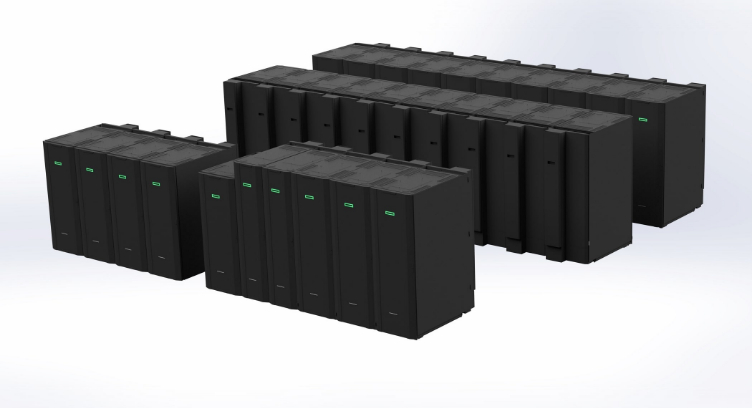Hewlett Packard Enterprise on Friday announced that it was selected by Tokyo Institute of Technology (Tokyo Tech) Global Scientific Information and Computing Center (GSIC) to build its next-generation supercomputer, TSUBAME4.0, to accelerate AI-driven scientific discovery in medicine, materials science, climate research, and turbulence in urban environments.
TSUBAME4.0, which was procured under the Japanese government procurement rules and was awarded to HPE Japan, will be fully operational in spring of 2024. The system will be based in a newly constructed facility in Tokyo Tech’s Suzukakedai campus.
TSUBAME4.0 will be built using HPE Cray XD6500 supercomputers, which provide maximum performance and specialized capabilities to run modeling and simulation workloads required for complex scientific research. The HPE Cray XD6500 supercomputers are also highly dense and purpose-built to support accelerated compute that is optimized to power AI, analytics, and image-intensive applications.
TSUBAME4.0 will achieve a theoretical peak performance of 66.8 petaflops at 64-bit double precision. Additionally, the system will reach 952 petaflops at 16-bit half-precision, delivering 20 times more accelerated compute performance than TSUBAME3.0, its predecessor. TSUBAME4.0 will provide significantly higher performance to address the computational demands of many users, serving as a “supercomputer for everyone”.
Professor Yutaka Akiyama, School of Computing, Tokyo Tech
TSUBAME has been supporting our research on cyclic peptide drug discovery, which is anticipated to become the next-generation medicine. TSUBAME has always been our partner in the daring challenges of achieving world’s first. It has been supporting reproduction of biophysical phenomena with hundred-fold larger simulations, and through exhaustive calculation on hundreds of cases has generated quantitative proof of predictive ability. With the significantly accelerated TSUBAME4.0, we look forward to its support in realizing intelligent drug discovery through large-scale molecular simulation and fusing it with deep learning technology in generating predictive models.
Justin Hotard, executive vice president and general manager, HPC, AI & Labs, at HPE
National research centers across the globe rely on supercomputing to drive science, engineering, and AI initiatives to understand complex phenomena and accelerate innovation. Tokyo Tech is a powerful example of an organization that continues to invest in supercomputing and opens it to a broader community to enable cutting-edge research and new capabilities in AI. We are proud to continue our collaboration with Tokyo Tech and NVIDIA to build TSUBAME4.0, which features HPE Cray supercomputing innovation to deliver the massive performance required to augment Tokyo Tech’s ongoing scientific and AI-driven missions.






















